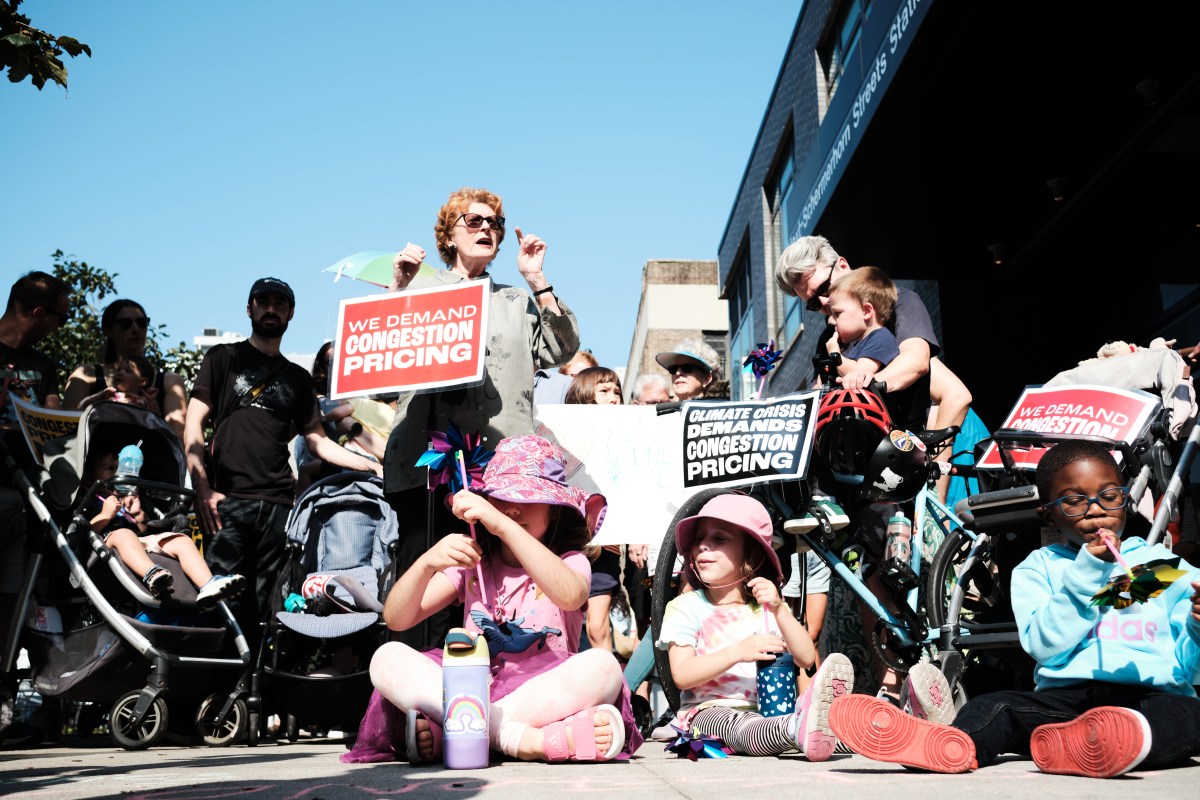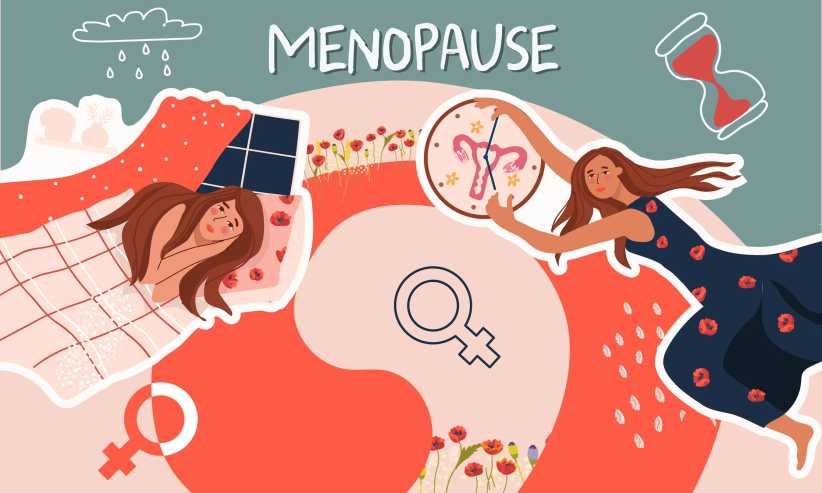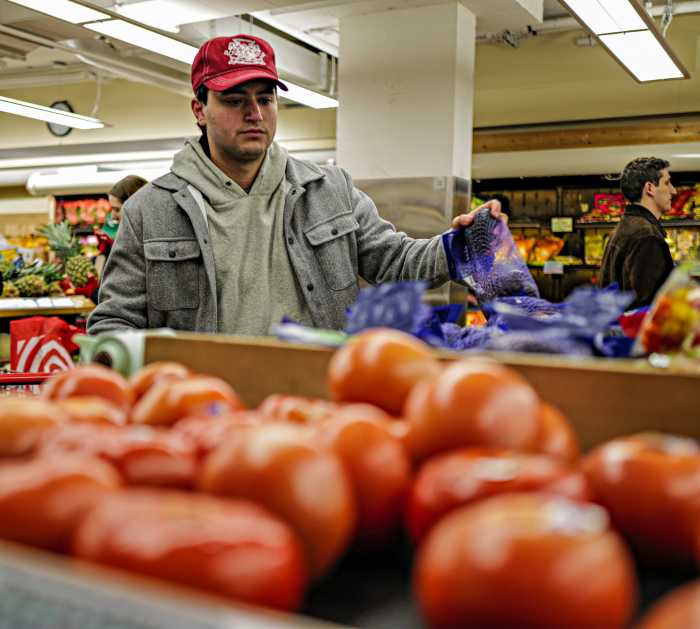Bradley Gifford grew up in a food desert in Fort Greene, where cheap, convenient meals were the norm and healthy options were scarce.
As a child, he struggled with high blood pressure and obesity, often starting his mornings with one of his favorite foods — Quaker’s instant peaches-and-cream or strawberries-and-cream oatmeal — which, looking back, he says was packed with sugar. In college, Gifford began to understand the difference between quality food and convenience food.
He eventually turned his health journey into Spoonful — an overnight oats company focused on making nutritious, on-the-go breakfasts accessible to all. This year, he received a $50,000 grant from Pharrell Williams’ Black Ambition Initiative, which supports Black entrepreneurs.
“It’s the gift that keeps on giving — not just the investment, but the opportunities that follow,” said Gifford, noting a potential partnership with Chobani and a week spent with marketing and operations teams from Louis Vuitton and Heineken, sponsors of the Black Ambition Initiative.
Although Gifford doesn’t have dietary restrictions himself, he created a gut-friendly product for gluten-free eaters, runners with sensitive stomachs, and the roughly 80% of African Americans and Native Americans who are lactose-intolerant.
“Growing up in a food desert and seeing how many lactose-intolerant Black and Brown people there are. And seeing that the fastest growing segment of plant-based eaters are Black and Brown people,” said Gifford. “I felt like I could make something that supported those decisions even though I wasn’t personally vegan.”
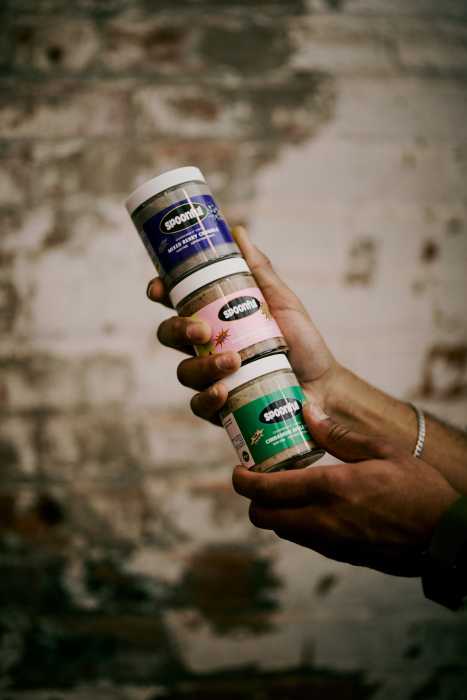
Spoonful’s top-selling flavor, Peanut Butter Chocolate, includes oat milk, gluten-free oats, pea protein, cocoa nibs, blue agave, chia seeds, flaxseed, cocoa, peanut butter, and Bacillus coagulans — a probiotic that aids digestion.
“The nutritional benefits of a high-quality grain bowl are undeniable,” Gifford said. “It keeps you full, it has soluble fiber, it gives you stable energy because it doesn’t spike your glucose and insulin levels throughout the day.”
While tariffs on ingredients like organic blue agave and fruit extracts from China and Mexico have kept Spoonful’s price point high, Gifford relies on partnerships, discounts, and fundraising events to reach low-income communities. Through Food with Fam — a local CSA that works with the NYC Housing Authority — Spoonful donates part of its quarterly output to farmers markets, housing complexes, and One Love Community Fridges in underserved areas. They also accept EBT and Food Stamps.
Gifford described the Black Ambition experience as eye-opening, highlighting the value of community learning. He was mentored by a Walmart e-commerce executive and worked alongside five other founders. The collaboration and insights from peers, including two Black women who advanced with him, helped refine his growth strategy.
“Shout out to them,” Gifford said. “Pharrell would often say, ‘If you want to run fast, you have to practice running with fast people.’ That’s exactly what it was.”
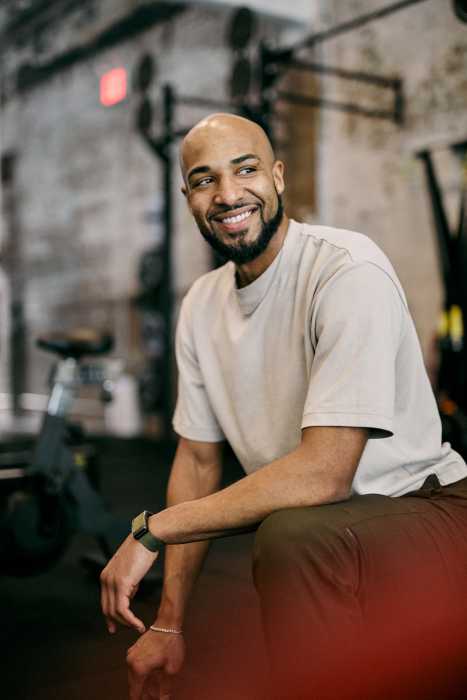
Looking ahead, Gifford hopes to expand Spoonful’s distribution to supermarkets nationwide. During a one-on-one with PepsiCo’s CMO through Black Ambition, he floated the idea of switching from glass jars to plastic. The executive shared a cautionary tale: when San Pellegrino removed the foil lids from its cans to cut costs, it sparked backlash from customers who valued the sensory experience. That story reaffirmed Gifford’s commitment to the glass jar, which he says allows customers to reseal and return to their food — essential to Spoonful’s promise of convenience.
“We sell convenience and community first,” Gifford said. “Creating a relationship with someone at the start of their day is powerful. It gives people a chance to take ownership of their health — and that’s a relationship I don’t take lightly.”







